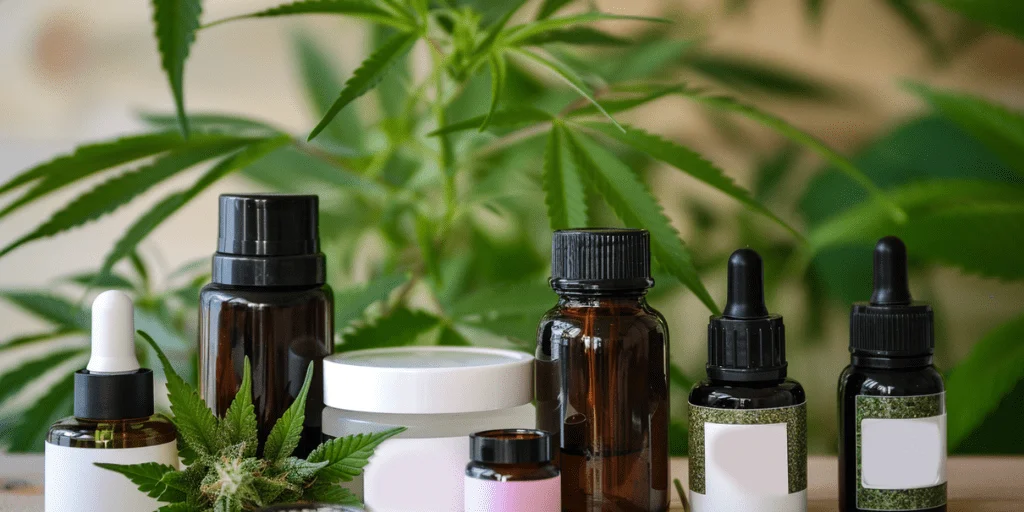The development of the global CBD market has been met with multiple CBD business challenges. Managing a CBD business involves navigating many challenges, including regulatory compliance, paid advertising, online payment processing etc. Addressing these issues with strategic planning and a commitment to transparency is crucial for success in the CBD market.
As with any other industry that also sprung up quickly and has a massive cultural stigma attached, manufacturers haven’t had the luxury of decades upon decades of clarification. For example, alcohol producers rarely see laws change so fastly, and the public has long been able to enjoy alcoholic beverages legally. While it’s not a one-to-one comparison, CBD seems new and mysterious to many, while alcohol has always just “been there.”
It is important to understand that challenges facing CBD businesses, especially manufacturers, are not impossible to overcome. Some will be handled by the progression of time, while others must be solved on a business-to-business level. Understanding these challenges and developing strategies to address them is very important for anyone looking to succeed in the CBD market.
Addressing 11 major challenges in CBD business operations
Starting any business is never an easy task, and this complexity is intensified in the CBD business due to the strict regulatory environment. Initial plans can sometimes require frequent adjustments to navigate the constantly evolving legal landscape. This is particularly common for businesses dealing with products like food supplements, medications, or novel foods.
The CBD business faces unique challenges that demand careful planning and flexibility. Ensuring product safety and quality control, efficacy, and legal compliance requires constant adaptation. Let’s take a look at the most common challenges when operating a CBD business.
Challenging public perceptions of CBD
It is true that CBD seems to be everywhere and in everything. However, there are still many people who know almost nothing about CBD. Even worse, they still think that since CBD is from the Cannabis sativa plant, it has some properties of marijuana. Thus, they often consider it as something addictive and harmful to health. These misconceptions still mean significant challenges for CBD businesses.
To overcome these challenges, CBD businesses must invest in educating consumers about the true nature and benefits of CBD. Creating targeted promotional campaigns that clearly communicate the safety and health benefits of CBD can play an important role in changing public perception of CBD. By prioritizing education and transparency, CBD businesses can address these challenges and encourage a more informed market.

Ensuring transparency and accuracy helps
One of the most critical steps in overcoming CBD business challenges is ensuring that the products contain the advertised amount of CBD. This transparency is vital in fighting the stigma associated with CBD and building consumer trust. By being above board in all marketing, promotions, and required packaging information, CBD businesses can demonstrate their commitment to quality and honesty. Accurate labeling and clear communication about product contents are essential for maintaining credibility. Additionally, as CBD products become more common in popular culture, the stigma will be naturally gone after some time.
The ever-changing CBD laws
Regulatory challenges often pose the biggest difficulties for CBD businesses, preventing many from turning their visions into reality. In Europe, the regulatory landscape may seem straightforward, but laws can differ from country to country, sometimes complicating compliance efforts. Also, in the EU, edible CBD products must undergo the novel food approval process, which is both time-consuming and costly. This process involves preparing extensive documentation and investing considerable resources to meet regulatory requirements.
Additionally, the implementation and interpretation of CBD laws can vary greatly across different countries. For instance, some countries may permit the import of CBD products but restrict their retail sale through online platforms. These complexities require anyone involved in the CBD market to be acquainted with regulatory nuances.
Important things to note
One of the critical challenges for CBD businesses is ensuring that their CBD products stay below the required THC threshold. Compliance with THC regulations is crucial for the legal sale of CBD products. Regular testing and monitoring are necessary to ensure the CBD products meet legal standards.
Supply quality
Sourcing quality hemp for producing CBD products is also a significant challenge for CBD businesses. If businesses do not cultivate hemp themselves, they are dependent on the available supply, which can vary widely in quality.
Some of the CBD oil in the marketplace comes from emerging markets where quality control and manufacturing processes are often less strict than in regions like the EU. This can lead to inconsistencies in the final CBD product, affecting both efficacy and safety.
CBD businesses must carefully choose their suppliers to minimize these challenges. By choosing a CBD manufacturing expert that prioritizes quality control, CBD businesses can overcome this challenge easily and deliver high quality CBD products to the market.
Third-party laboratory testing is essential
Third-party laboratory testing is essential for ensuring the quality and legality of CBD products, but it involves more than just meeting basic requirements. For CBD businesses to assure potential customers and regulatory authorities of their products’ safety and efficacy, they must adopt the strict standards used by pharmaceutical and food manufacturers. This includes implementing accurate operating procedures and maintaining the most innovative manufacturing processes. Ensuring that every product batch meets the highest quality standards helps build consumer trust and regulatory compliance, addressing one of the most significant challenges in the CBD industry.

Competition
Competition is a common challenge in every industry, but it is particularly pronounced in the CBD business due to its relative newness and high market value potential. New competitors are continually emerging, eager to capitalize on the growing demand for CBD products.
Developing and sourcing unique CBD products, building strong brand loyalty, and focusing on high-quality standards can help smaller CBD businesses maintain their market position. Strategically navigating the competitive challenges is essential for long-term success in the CBD industry.
What to consider
Establishing a strong presence in the CBD business now is crucial as the market size, currently at $4.9 billion, is projected to grow to $47 billion by 2028. For CBD businesses, this means ensuring that processes, products, marketing, and branding are all highly effective and well-coordinated. Staying ahead of market trends and continuously innovating product lines are essential strategies to maintain a competitive edge.
Labeling
Proper labeling is important for ensuring that CBD products are transported legally and safely. For CBD businesses, it is essential to ensure that packaging is tamper-proof and child-resistant, while also being compliant with all regulatory requirements. Accurate and comprehensive labeling must include the product name, weight, and all necessary legal information, such as THC content. This is particularly important for compliance with various regional laws and regulations, which can vary widely.
Proper labeling not only helps in legal transportation but also builds trust with consumers by providing transparency and safety. Regularly reviewing and updating labeling practices to meet evolving legal standards is a necessary step in overcoming the challenges in the CBD business, ensuring products are safe, compliant, and trustworthy.
Enhancing compliance in labeling
Ensuring that labeling and packaging are aligned with a country’s regulations and consumer expectations is crucial for CBD businesses. Misleading or false claims on packaging can harm a CBD oil manufacturer’s credibility. To maintain compliance and consumer trust, it is essential that all product information is accurate and transparent.
Paid advertising
Paid advertising poses a significant challenge for many CBD businesses. Major platforms like Google, Facebook, Instagram and TikTok often restrict CBD advertisements due to concerns about potential legal liabilities. These restrictions come from the complex legal status of CBD and the fear of promoting products that might not comply with regional regulations. Additionally, there are strict rules against making false or misleading health claims, which further complicates advertising efforts for CBD businesses. Challenges of paid advertising is also the main reason why many CBD businesses fail to succeed.
These limitations force CBD businesses to seek alternative marketing strategies for guaranteeing organic reach, such as content marketing, influencer partnerships, and social media engagement. Navigating these paid advertising challenges requires creativity. Hempo Solutions can definitely help you overcome these and you can contact us at any time.

Online payment processing
Online payment processing is another significant challenge that many CBD businesses encounter. CBD products are often categorized as “high-risk” by payment processors due to regulatory uncertainty, potential chargeback risks, and reputational concerns. This classification makes it difficult for CBD businesses to find reliable payment processing solutions, often resulting in higher fees and the need for specialized high-risk merchant accounts. The stigma and regulatory complexities surrounding CBD can discourage mainstream payment providers like Google Pay, Apple Pay, Visa/Mastercard etc. from offering their services, forcing CBD businesses to rely on less established providers.
By choosing Hempo Solutions as your CBD supplier, you gain access to our business consultations, where our experts assist in overcoming the challenges of navigating online payment processing. Our team understands the complexities and regulatory complications that classify CBD products as “high-risk” for many payment processors. We provide individual advice and strategies to help you find reliable payment processing solutions that correspond to the unique needs of your CBD business.
Ensuring the right quality control and product consistency
Another major challenge facing the global CBD market is quality control and product consistency. The lack of standardized manufacturing processes leads to significant variations in the quality and purity of CBD products available on the market. This inconsistency not only affects consumer trust but also poses health risks, making it critical for CBD businesses to prioritize quality assurance.
When sourcing a CBD supplier, choosing only those implementing strict quality control measures, adhering to best manufacturing practices, and maintaining transparency in product testing is essential.
Transparency
The lack of transparency in the European CBD market comes mostly from regulatory uncertainty and a lack of standardization. This leads to inconsistencies in definitions and quality standards, making it difficult for buyers to distinguish between different CBD products. Terms like “full-spectrum” or “distillate” can have varying meanings among different manufacturers, resulting in potential misunderstandings. You sometimes may find yourself misled, whether intentionally or unintentionally, leading to disappointment in the overall CBD market.
However, there are signs of progress within the CBD industry. The European Industrial Hemp Association (EIHA) has recently proposed definitions for concentrated extract products, which, if widely adopted, could help address the issue of standardization. Additionally, the increasing attention on testing within the CBD sector enhances transparency and raises product quality standards.
As these practices become more widespread, they will contribute to greater consistency and reliability in the European CBD market. For CBD businesses, staying informed about these developments and actively participating in industry-wide efforts towards standardization can help overcome these challenges and build a more transparent and trustworthy market.
Shipping
Shipping CBD products across European borders has significantly risen over the years, yet it remains a significant challenge in the industry. The lack of education for customs authorities and the scarcity of clear import guidelines for CBD and hemp products lead to frequent importation problems, with products often seized at borders, especially those from international markets. The majority of CBD shipments in Europe are small scale, typically less than 10 kilograms, and handled through standard shipping services like DHL and UPS. While these shipments are usually discreet and often not stopped by customs, there is still a substantial risk that CBD products may be held for several months for inspection before being released.

To mitigate this risk for larger transactions, which could be financially adverse if blocked by customs, many CBD businesses prefer using specialized distribution companies with CBD experience. These experienced CBD distributors and logistic providers possess strong knowledge of relevant regulations, jurisdiction-specific practices, and CBD-friendly entry ports, making them valuable partners in navigating these challenges. As a highly experienced CBD manufacturer, we can help you make the right decisions regarding logistics.
Regulation
The establishment of a clear and detailed regulatory framework for the CBD industry is an ongoing process at both the European and national levels. One notable exception is Switzerland, which has a well-defined system for licensing and commercializing CBD. The requirement for Novel Food authorizations for ingestible CBD products represents a significant barrier to the industry’s full legitimization in Europe. The three ongoing Novel Food authorization processes in the EU, the UK, and Switzerland run parallel to the industry, with the Swiss process currently having no applications under review. The UK and EU processes have faced criticism for inconsistency and for placing undue strain on CBD operators.
Other regulatory issues present additional challenges to the CBD industry in Europe. These include proposed THC limits in food products that do not reflect current or expected market practices, a lack of alignment in trade codes for CBD products, and national regulations still focused on industrial hemp rather than the CBD industry. Nevertheless, partnering with Hempo Solutions can help any CBD market entrant easily navigate the complex CBD regulations across Europe.
Challenges of operating a CBD business: key findings
Getting started with the CBD business indeed requires extensive learning, but this is true for any business. These challenges should not deter you from pursuing your business plans. Instead, they highlight the importance of proper planning.
With thorough research and strategic planning, many of these challenges can be anticipated and managed effectively. Additionally, partnering with the right business experts like Hempo Solutions can significantly ease the process of starting a CBD business. An experienced partner can provide valuable insights and guidance, helping you navigate the complexities of the CBD industry. By leveraging expert support, you can overcome initial challenges and set your CBD business on the path to success.
Featured Articles

Blog Home
No Content
